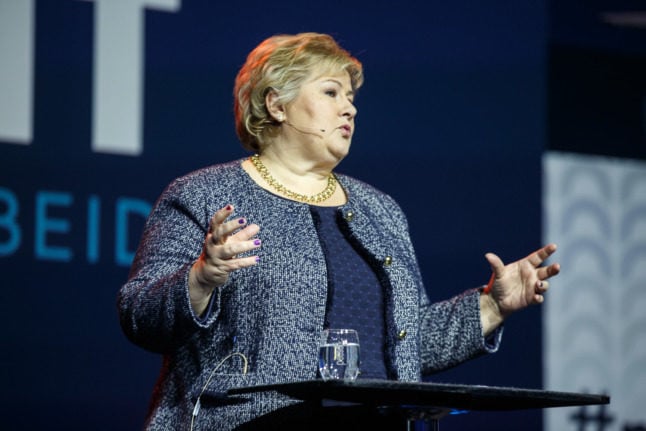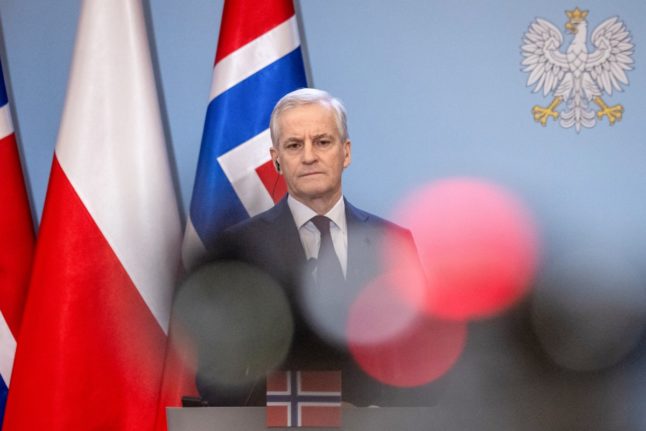Change is in the air
Barring a major upset, Prime Minister Erna Solberg’s centre-right coalition that has governed Norway since 2013 is set to be ousted, according to opinion polls and experts.
Labour Party leader Jonas Gahr Store is instead poised to win the polls. Whether he will be able to form a coalition of left-leaning and green parties, with a majority, is another question.
Earlier this week, The Local took an in-depth look at the polls ahead of the election. In addition to putting together an interactive chart that lets you see how many MPs each party is projected to get and how this compares to the last election, we also analysed what could happen if Labour doesn’t get their majority.
ANALYSIS: What will happen in next week’s Norwegian election?
Veteran versus millionaire
No other Conservative leader has governed Norway as long as Solberg, nicknamed “Iron Erna.” A native of the western city of Bergen, the 60-year-old steered the country through successive crises from the migrant wave in 2015 to plunging oil prices and the Covid-19 pandemic.
Store, 61, is a millionaire whose main campaign plank is the fight against inequality. A graduate of Sciences Po in Paris, he follows in the footsteps of his mentor and friend Jens Stoltenberg, the current NATO secretary general. Store served as foreign minister and then health minister in Stoltenberg’s governments. He failed to oust Solberg in the 2017 election.
Store and Solberg aren’t the only leaders you need the low-down on. If you want to learn more about the leaders of Norway’s political parties check out the article below.
EXPLAINED: Who’s who in Norway’s 2021 election race
Climate crisis
The UN’s alarming climate report in August has propelled global warming to the heart of the election campaign, with a focus on the future of the oil industry in western Europe’s biggest producer.
Several parties on both sides – the Greens, Socialist Left and Liberals – want to put an end to the oil industry and ban any further prospecting.
Their ability to make any inroads on the issue with the bigger parties – which are more favourable to the industry – will depend on their election scores and the balance of power.
Splintered political landscape
Norway’s splintered political landscape makes coalition-building difficult. The two biggest parties, Labour and the Conservatives, have seen their voter bases decline with the rise of smaller parties.
On the left, five parties are in agreement to oust the current government, but some of these have diametrically opposed positions and have said they will not govern together.
If Store is unable to build a coalition with a majority, he could choose to govern solo in a minority government and get backing on a case-by-case basis to pass legislation.
On the right, things are not much different. The Conservatives are supported by a clutch of smaller parties, which also have their own disagreements.
For the rundown on Norway’s nine parties click here.
The magical number four
Much will depend on the small parties’ election night score. Several ofvthem are hovering around the four percent level.
Under the Norwegian system, parties that get more than four percent qualify for the 19 so-called “levelling seats” in the 169-seat parliament, which often prove crucial for building a majority.
In Norwegian this election threshold is called ‘sperregrensen’. If you want to read about the massive impact the threshold could have on this years election in more detail then take a look at The Local’s guide.
Norwegian election: Which parties could hit the ‘sperregrense’ jackpot?



 Please whitelist us to continue reading.
Please whitelist us to continue reading.
Member comments